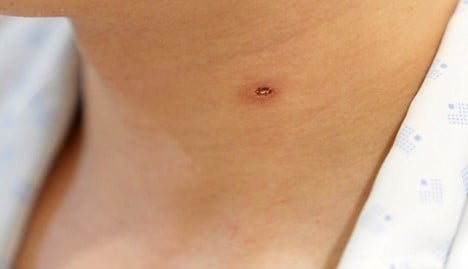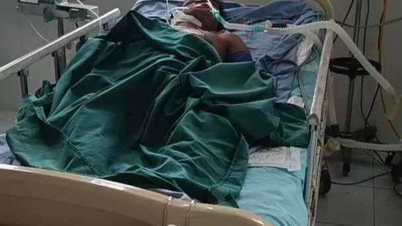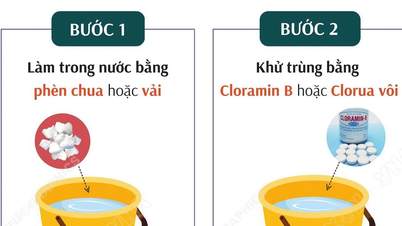On August 28, Tam Anh General Hospital in Hanoi announced that it had admitted a patient, Mr. Trung Duc (residing in Ha Nam ), who experienced fatigue, nausea, bloating and indigestion after being stung by a bee in the neck and abdomen.
Previously, when visiting a hospital, Mr. Duc was diagnosed with irreversible chronic kidney failure and advised to have a suitable diet for conservative treatment. Worried about the doctor's diagnosis because he was previously healthy and normal, Mr. Duc returned to Tam Anh General Hospital in Hanoi at the end of August 2023.
Dr. Mai Thi Hien, Deputy Head of the Department of Urology - Andrology and Nephrology, said that the patient came to the clinic with atypical symptoms that could be easily confused with many other diseases. The previous conclusion of chronic kidney failure was incorrect because the patient did not have an underlying disease that led to chronic kidney failure such as high blood pressure, kidney stones, glomerular disease, etc.
The doctor carefully takes a medical history and finds the cause of kidney failure by performing kidney function tests, electrolytes, and other specialized tests such as CK, LDH, myoglobinuria, etc.

Wasp sting on patient's neck. (Photo provided by hospital).
Dr. Hien explained that when stung by a wasp, muscle cells are damaged, leading to the release of a series of substances into the circulatory system such as potassium, uric acid, myoglobin, and lactic acid. Myoglobin causes increased vascular permeability, leading to decreased circulatory volume, and at the same time disrupts the excretion of potassium, salt, and water in the renal tubules, causing renal tubular obstruction leading to acute renal failure.
Concluding that Mr. Duc had acute kidney failure due to rhabdomyolysis, the doctor ordered him to be hospitalized, given intravenous fluids, given blood alkalization, reduced uric acid, and other specialized treatments, while also being closely monitored for his general condition, urine, and kidney function.
At the same time, instruct the patient to rest and eat properly. After 2 days of active treatment, Mr. Duc's health is stable, no nausea, good appetite, improved kidney function.
In the case of the German patient, if not treated promptly, it could lead to severe acute renal failure and death. Dr. Hien cited many statistics showing that if acute renal failure is not treated properly, it can become chronic renal failure. About 30% of patients with acute renal failure due to rhabdomyolysis without treatment lead to chronic renal failure.
Dr. Hien warned that wasp stings are very common, especially in rural and mountainous areas. Patients often ignore the initial symptoms, causing the disease to go undetected and untreated, greatly affecting kidney function and general health.
When stung by a bee, if symptoms such as little urination, pain, nausea, etc. appear, the patient should visit a reputable medical facility for accurate diagnosis and timely treatment. In the case of people who have been stung by a bee and have acute kidney failure like Mr. Duc, regular check-ups are needed to check kidney function.
Thu Phuong
Source





![[Photo] Hanoi morning of October 1: Prolonged flooding, people wade to work](https://vphoto.vietnam.vn/thumb/1200x675/vietnam/resource/IMAGE/2025/10/1/189be28938e3493fa26b2938efa2059e)































![[Photo] President Luong Cuong receives President of the Cuban National Assembly Esteban Lazo Hernandez](https://vphoto.vietnam.vn/thumb/1200x675/vietnam/resource/IMAGE/2025/9/30/4d38932911c24f6ea1936252bd5427fa)
![[Photo] Panorama of the cable-stayed bridge, the final bottleneck of the Ben Luc-Long Thanh expressway](https://vphoto.vietnam.vn/thumb/1200x675/vietnam/resource/IMAGE/2025/9/30/391fdf21025541d6b2f092e49a17243f)



























































Comment (0)